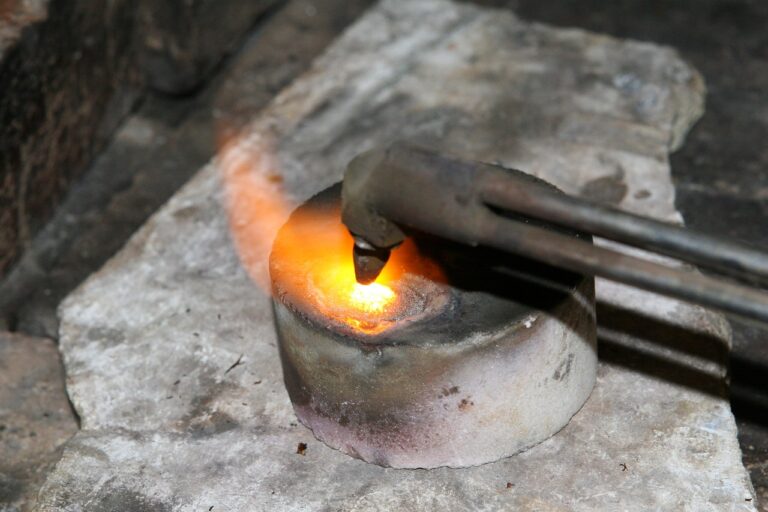The Role of Industry 4.0 in Car Manufacturing: Skyexch win, World777 com id, Goldbet7 com
skyexch win, world777 com id, goldbet7 com: The Role of Industry 4.0 in Car Manufacturing
In recent years, the automotive industry has undergone a significant transformation with the introduction of Industry 4.0 technologies. These advanced technologies have revolutionized the way cars are manufactured, making the process more efficient, sustainable, and innovative. From smart factories to AI-powered robots, Industry 4.0 has had a profound impact on car manufacturing.
Embracing Industry 4.0 in car manufacturing has allowed manufacturers to enhance their production processes, improve product quality, and increase overall productivity. By leveraging technologies such as IoT, big data analytics, artificial intelligence, and robotics, car manufacturers can optimize their operations and meet the demands of today’s rapidly evolving market.
So, what exactly is Industry 4.0, and how is it transforming the automotive industry? Let’s delve into the details.
The Evolution of Industry 4.0 in Car Manufacturing
Industry 4.0, also known as the fourth industrial revolution, is a concept that encompasses the integration of digital technologies into manufacturing processes. It focuses on creating smart factories that are interconnected, automated, and data-driven. In the context of car manufacturing, Industry 4.0 has enabled manufacturers to streamline production, reduce costs, and improve efficiency.
One of the key aspects of Industry 4.0 in car manufacturing is the use of IoT devices. These devices collect data from various sensors installed throughout the factory floor, providing real-time insights into the production process. By analyzing this data, manufacturers can identify inefficiencies, predict maintenance needs, and optimize workflows to maximize productivity.
Another crucial technology in Industry 4.0 is artificial intelligence. AI-powered robots are increasingly being used in car manufacturing to perform tasks that are repetitive, dangerous, or require high precision. These robots can assemble parts, weld components, and even inspect finished vehicles with greater accuracy and efficiency than human workers.
Moreover, big data analytics plays a vital role in Industry 4.0 by helping manufacturers make data-driven decisions. By analyzing large volumes of data generated by production processes, manufacturers can identify patterns, trends, and opportunities for improvement. This enables them to optimize their operations, reduce waste, and enhance product quality.
Benefits of Industry 4.0 in Car Manufacturing
The adoption of Industry 4.0 technologies in car manufacturing has brought about a myriad of benefits for manufacturers, consumers, and the environment. Some of the key advantages include:
1. Increased productivity: Industry 4.0 enables manufacturers to optimize their production processes, reduce downtime, and improve overall efficiency. This results in higher productivity levels and faster time-to-market for new vehicles.
2. Improved product quality: By leveraging AI and big data analytics, manufacturers can identify defects early in the production process and take corrective action. This leads to higher product quality and fewer recalls, ultimately enhancing customer satisfaction.
3. Sustainability: Industry 4.0 technologies help manufacturers reduce their environmental impact by optimizing energy consumption, minimizing waste, and promoting sustainable practices. This aligns with the growing trend towards eco-friendly manufacturing in the automotive industry.
4. Customization: With Industry 4.0, manufacturers can easily customize vehicles to meet the unique preferences of consumers. This level of flexibility allows for greater personalization and a more tailored shopping experience for car buyers.
5. Cost savings: By automating repetitive tasks and optimizing processes, manufacturers can reduce labor costs, minimize errors, and lower production expenses. This results in significant cost savings for car manufacturers.
Challenges of Implementing Industry 4.0 in Car Manufacturing
While Industry 4.0 offers numerous benefits for car manufacturers, there are also challenges associated with implementing these technologies. Some of the common hurdles include:
1. High initial investment: The upfront costs of integrating Industry 4.0 technologies into existing manufacturing facilities can be significant. Manufacturers may need to invest in new equipment, software, and training programs to fully leverage the benefits of Industry 4.0.
2. Skilled workforce: Industry 4.0 requires a workforce that is proficient in digital technologies and data analytics. Manufacturers may need to upskill their employees or hire new talent with the necessary expertise to successfully implement Industry 4.0 in their operations.
3. Security concerns: With the increasing connectivity of smart factories, cybersecurity becomes a significant concern. Manufacturers need to ensure that their systems are secure from cyber threats and data breaches to protect their sensitive information and intellectual property.
4. Integration with legacy systems: Many car manufacturers have existing production systems that are not compatible with Industry 4.0 technologies. Integrating new technologies with legacy systems can be complex and require careful planning to avoid disruptions in production.
5. Regulatory compliance: As Industry 4.0 introduces new technologies and processes into car manufacturing, manufacturers need to ensure they comply with industry regulations and standards. This may involve updating existing protocols and procedures to meet regulatory requirements.
The Future of Industry 4.0 in Car Manufacturing
Despite the challenges, the future of Industry 4.0 in car manufacturing looks promising. As technology continues to advance, manufacturers will have access to even more sophisticated tools and solutions to optimize their operations and deliver high-quality vehicles to consumers. From autonomous vehicles to 3D printing, Industry 4.0 is set to transform the automotive industry further in the coming years.
FAQs
1. What are the key technologies driving Industry 4.0 in car manufacturing?
The key technologies driving Industry 4.0 in car manufacturing include Internet of Things (IoT), artificial intelligence (AI), big data analytics, and robotics. These technologies enable manufacturers to automate processes, optimize production, and enhance product quality.
2. How does Industry 4.0 benefit car manufacturers?
Industry 4.0 benefits car manufacturers by increasing productivity, improving product quality, promoting sustainability, enabling customization, and reducing costs. These advantages help manufacturers stay competitive in the evolving automotive market.
3. What are some of the challenges associated with implementing Industry 4.0 in car manufacturing?
Some of the challenges associated with implementing Industry 4.0 in car manufacturing include high initial investment costs, the need for a skilled workforce, security concerns, integration with legacy systems, and regulatory compliance. Overcoming these challenges requires careful planning and strategic investment.
In conclusion, Industry 4.0 has revolutionized the automotive industry by introducing advanced technologies that optimize production processes, improve product quality, and drive innovation. Car manufacturers that embrace Industry 4.0 will be well-positioned to thrive in a rapidly changing market and deliver cutting-edge vehicles that meet consumers’ evolving needs. As Industry 4.0 continues to evolve, the future of car manufacturing is bound to be even more efficient, sustainable, and technologically advanced.







